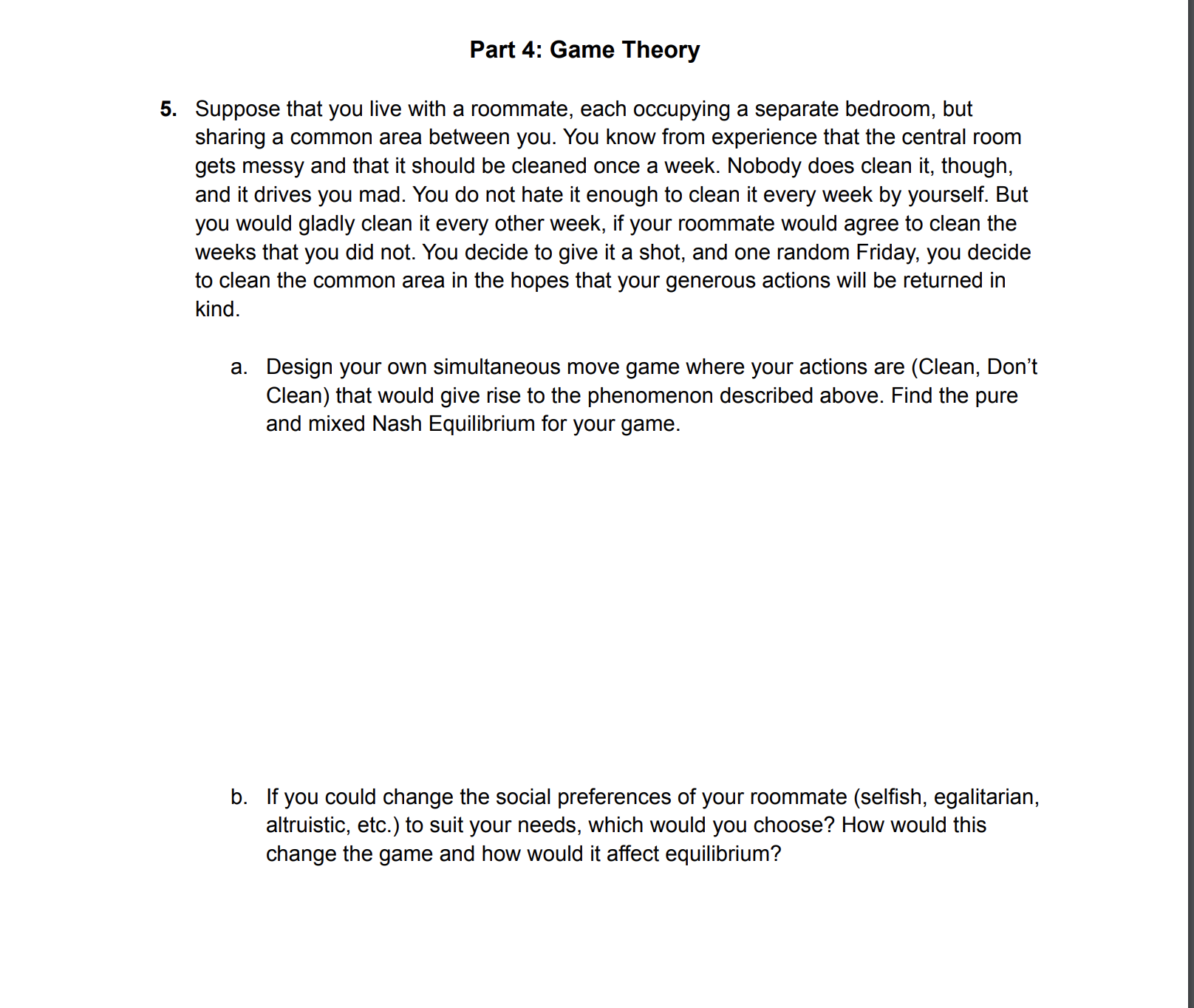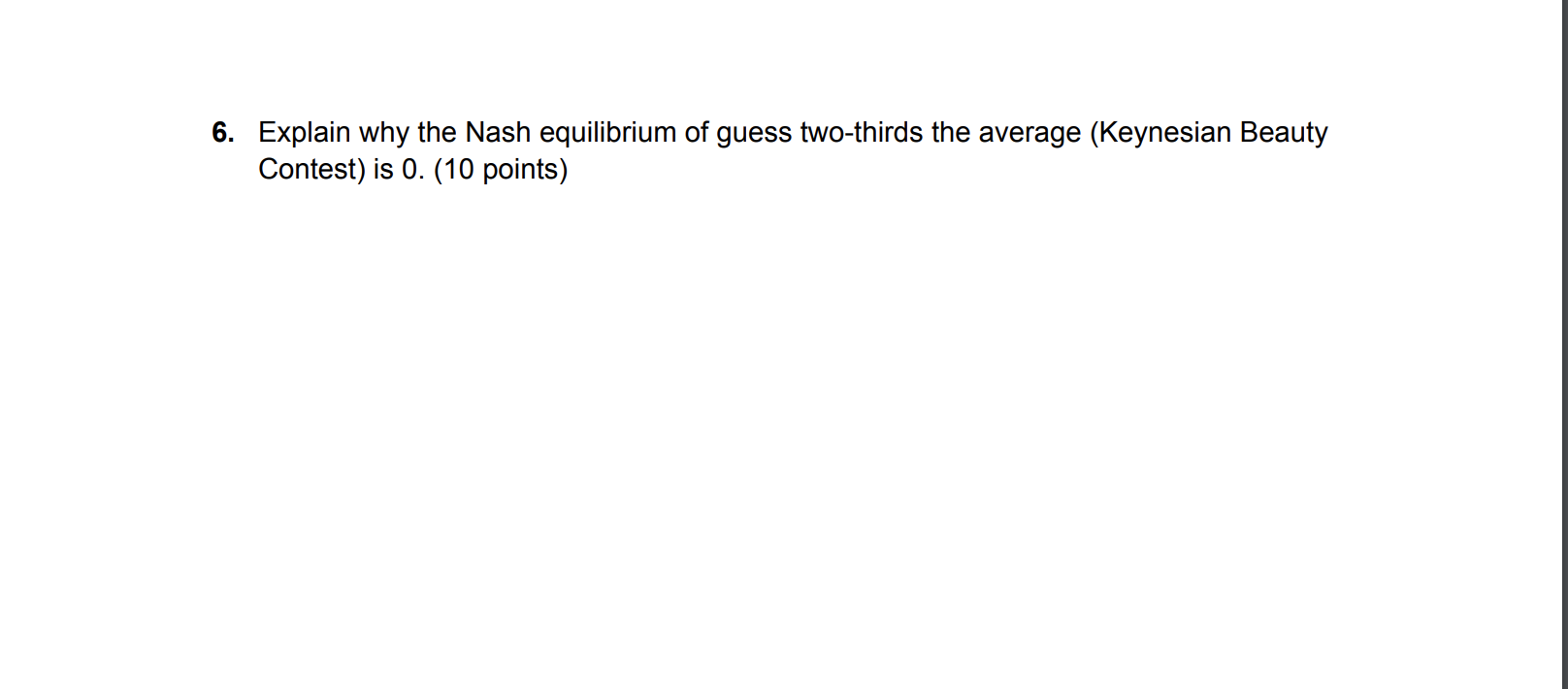Part 4: Game Theory 5. Suppose that you live with a roommate, each occupying a separate bedroom, but sharing a common area between you.


Part 4: Game Theory 5. Suppose that you live with a roommate, each occupying a separate bedroom, but sharing a common area between you. You know from experience that the central room gets messy and that it should be cleaned once a week. Nobody does clean it, though, and it drives you mad. You do not hate it enough to clean it every week by yourself. But you would gladly clean it every other week, if your roommate would agree to clean the weeks that you did not. You decide to give it a shot, and one random Friday, you decide to clean the common area in the hopes that your generous actions will be returned in kind. a. Design your own simultaneous move game where your actions are (Clean, Don't Clean) that would give rise to the phenomenon described above. Find the pure and mixed Nash Equilibrium for your game. b. If you could change the social preferences of your roommate (selfish, egalitarian, altruistic, etc.) to suit your needs, which would you choose? How would this change the game and how would it affect equilibrium? 6. Explain why the Nash equilibrium of guess two-thirds the average (Keynesian Beauty Contest) is 0. (10 points)
Step by Step Solution
There are 3 Steps involved in it
Step: 1

See step-by-step solutions with expert insights and AI powered tools for academic success
Step: 2

Step: 3

Ace Your Homework with AI
Get the answers you need in no time with our AI-driven, step-by-step assistance
Get Started


